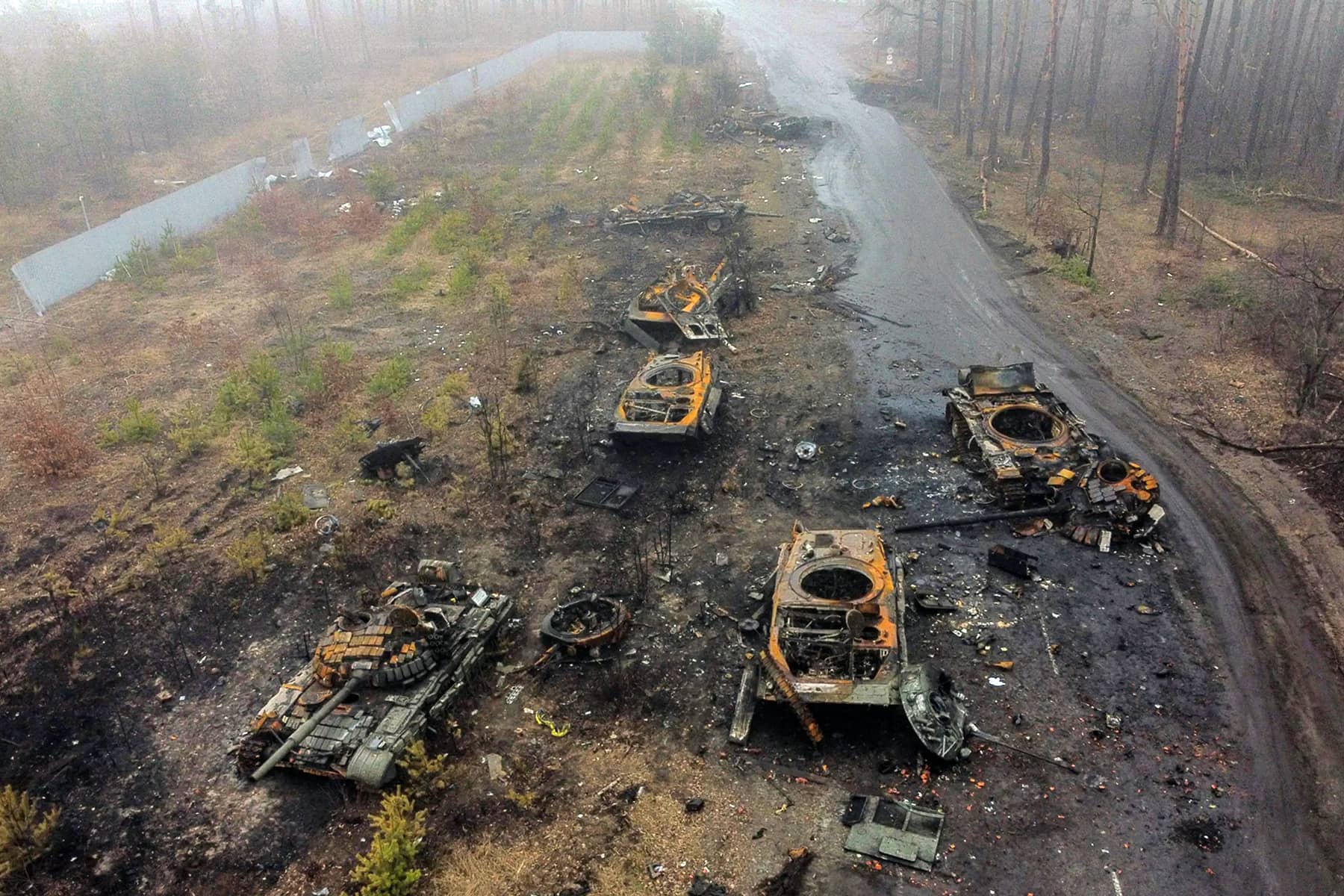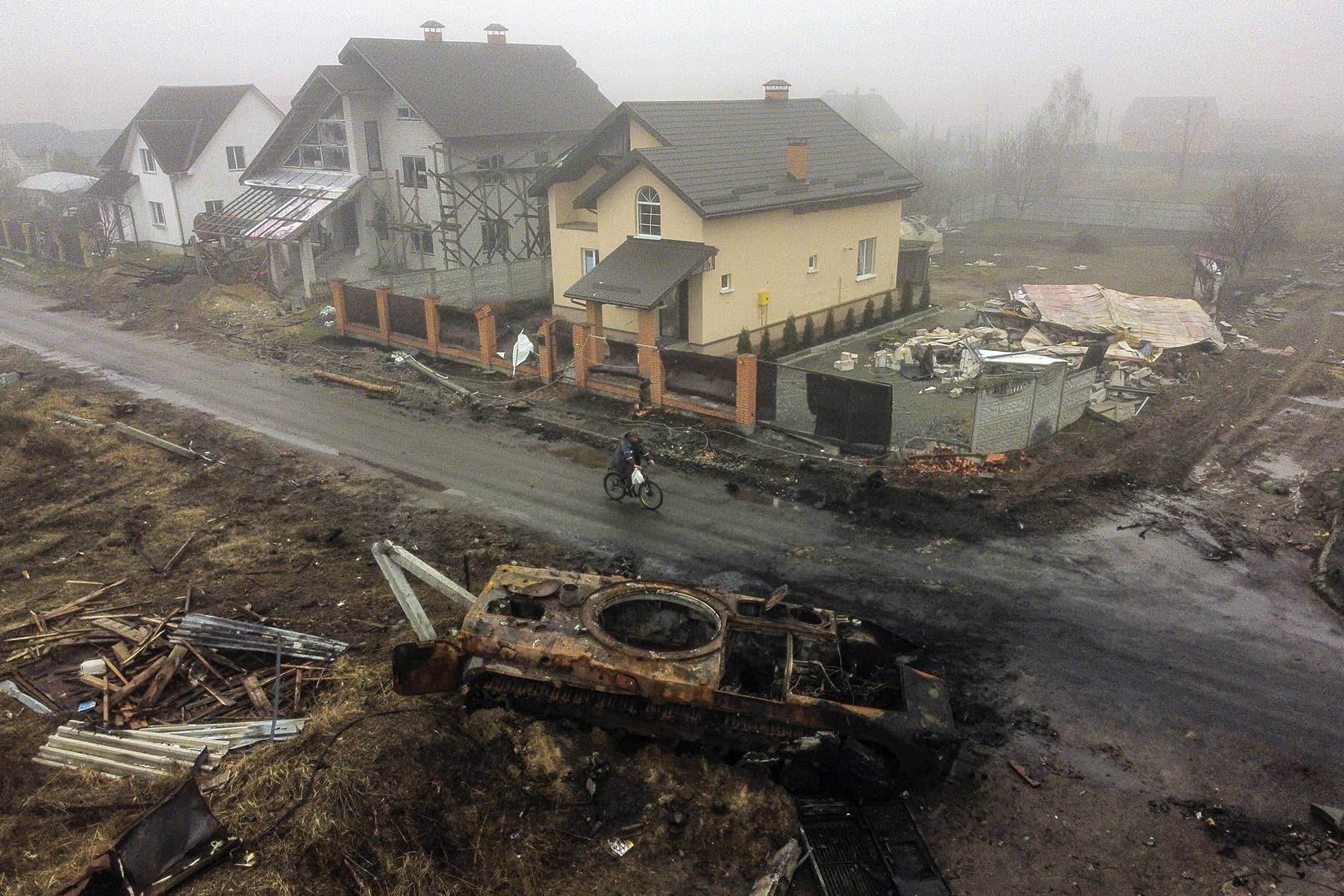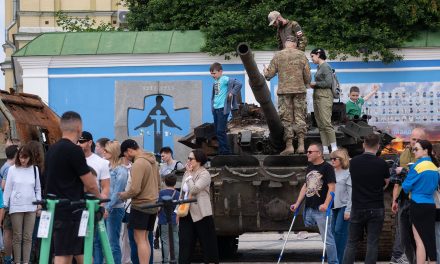
In a now-censored essay, former PRC Ambassador to the Ukraine Gao Yusheng, explained why Russia was losing the war in Ukraine. He also shared his thoughts about the effect that defeat may have on the international order. Gao Yusheng’s article appeared on the website of “Phoenix News” on the afternoon of May 10 and was taken down within hours.
Before it was removed, Gao Yusheng’s words were downloaded. An English version was translated and published by David Cowhig are provided below. Ambassadors in China usually do not publish anything, especially opinions, without pre-clearing the content. A few of the key messages, presented like a normal Chinese person would speak, included:
- We were wrong; the Russian army’s lousy performance in Ukraine proves that post-soviet Russia did not really modernize; therefore, where are we Chinese on real modernization?
- Russia would like to stop the war, but its enemies (Ukraine and NATO) do not want that, and the fight may go as far as to cause the fall of Russia. We have to reach a ceasefire as soon as possible to prevent possible chaos at our borders.
- Beware a rearmed Japan. Mao and Deng welcomed the U.S. in Asia to put a lid on Japanese ambitions. Now, this lid has been removed and we are about to face a belligerent Tokyo, something we have dreaded for a long time.
Yan Xuetong, dean of the Institute of International Relations at Tsinghua University, said the war has accelerated the reverse of globalization, which is not conducive to China’s trade. He reportedly argued that:
“The war has had a big impact on international order, he said, as both Washington and Moscow do not follow international rules… This war has exacerbated the situation that the international community is even more non-compliant with international rules. Russia did not abide by the UN Charter when launching the war this time, and the U.S. sanctions against it also did not comply with the rules.”
It all seemed to indicate the beginning of some profound rethinking in China. It may end up to be nothing, as it happened many times in Chinese history. Or it may have some outcome at the Party Congress this fall.
Gao Yusheng is a retired diplomat of the People’s Republic of China. In 2001 – 2003, he served as Ambassador of the People’s Republic of China to Turkmenistan, in 2003 – 2005, he served as Ambassador of the People’s Republic of China to Uzbekistan, and in 2005 -2007, as Ambassador of the People’s Republic of China to Ukraine. His last post was Deputy Secretary General of the Shanghai Cooperation Organization.
The Former PRC Ambassador to Ukraine Gao Yusheng: The Dynamics of the Russian-Ukrainian War and the Implications for the International Order
中国驻乌克兰前⼤使⾼⽟⽣:俄乌战争的⾛势和对国际秩序的影响 Former PRC Ambassador to Ukraine Gao Yusheng ⾼⽟⽣
The Impact of the Russian-Ukrainian War on the International Order
Recently, the Forum of Thirty on China’s International Finance and the Department of International Studies of the Chinese Academy of Social Sciences hosted an internal video seminar to discuss how the Russia-Ukraine crisis has changed the global financial landscape, its impact on China and how China should respond.
Former Chinese Ambassador to Ukraine Gao Yuanchuan spoke at the seminar. The following is the text of his talk including edits he made after giving his talk.
The Russo-Ukrainian War is the most important international event of the post-Cold War period. It marks the end of the post-Cold War period and creates in a new international order.
Russia’s position in the Russia-Ukraine war has become increasingly passive and unfavorable. Its coming defeat is already clear.
The main reasons why Russia is now heading towards defeat are:
- Russia has been declining ever since the collapse of the Soviet Union, a decline that is first of all a continuation of the pre-dissolution Soviet Union. It is also related to the failures of the internal and external policies of the Russian ruling clique. This process has been exacerbated by Western economic sanctions which have damaged sectors of the Russian economy. The so-called revival or revitalization of Russia under Putin’s leadership is false; it simply does not exist. Russia’s decline is evident in its economic, military, technological, political, and social spheres, and has had a serious negative impact on the Russian military and its war effort.
- The failure of the Russian blitzkrieg and the failure to achieve a quick victory signaled the beginning of the Russian defeat. The Russian military’s economic and financial strength, which are not commensurate with its status as a so-called military superpower, could not support a high-tech war costing hundreds of millions of dollars a day. The Russian army’s poverty-driven defeat was evident everywhere on the battlefield. Every day that the war is delayed is a heavy burden for Russia.
- Russian military and economic advantages over Ukraine have been offset by the resilience of Ukraine and the huge, sustained and effective aid provided to Ukraine. The generational differences between Russia and the U.S. and other NATO countries in the areas of weapons and technology, military concepts, and modes of warfare make the advantages and disadvantages of both sides even more pronounced.
- Modern wars are necessarily hybrid wars, covering military, economic, political, diplomatic, public opinion, propaganda, intelligence, and information. Russia is not only in a passive position on the battlefield, but has lost in other areas. This means that it is only a matter of time before Russia is finally. It is only a matter of time before Russia is finally defeated.
- Russia can no longer decide when and how the war will end. Russia is trying to end the war as soon as possible so it can hold on to what it has gained. This has failed. In this sense, Russia has lost its strategic leadership and initiative.
The next phase of the war is likely to be more violent and intense
The possibility of expansion and escalation cannot be ruled out. This is because: the objectives of the two sides are diametrically opposed. Ensuring its sovereignty over Crimea and eastern Ukraine is clearly the bottom line for the Russian side.
Ukraine will not concede to Russia on the issue of sovereignty and territorial integrity and will be determined to recover eastern Ukraine and Crimea through war. The U.S., NATO and the EU have repeatedly affirmed their determination to defeat Putin.
U.S. Assistant to the President for National Security Affairs John Sully recently emphasized three goals for the U.S. to achieve in the Russia-Ukraine war.
- An independent and liberal Ukraine
- A weakened and isolated Russia
- A strong, united, and resolute West
In order to achieve these goals, the United States and the NATO EU countries have not only significantly increased their assistance to Ukraine, but the United States also passed the first post-World War II Lend Lease Act. The U.S. has internationalized and institutionalized its assistance to Ukraine through the 41st Defense Ministerial Conference.
More importantly, the direct involvement of the U.S. and Britain in the war is deepening and expanding. All of this suggests that the war will be fought until Russia is defeated and punished.
The Russo-Ukrainian War and the New International Order
The Russo-Ukrainian War put an end to the Yalta system and the remnants of the Cold War, and the world began to move toward a new pattern and order of international relations.
After the collapse of the Soviet Union, Russia inherited the Soviet Union’s status as a permanent member of the UN Security Council and a military superpower; Russia continued and retained much of the legacy and influence of the former Soviet Union in domestic politics, economy, society, culture and ideology; and Russian foreign policy was a blend of the foreign policies of the former Soviet Union and of the Tsarist Empire.
(1) The central and overriding direction of the Putin regime’s foreign policy is to regard the former Soviet Union as its exclusive sphere of influence and to restore the empire through the mechanism of integration in all spheres of that area under Russian domination.
Russia has been focused and determined to achieve this goal. Russia has never really recognized the independence, sovereignty and territorial integrity of other former Soviet states, and has frequently violated their territoriality and sovereignty. The Russian-Ukrainian war has changed this situation dramatically in terms of peace and security in the Eurasian region.
After the independence of Ukraine, especially since 2000, the two factions in the country, which had been essentially equally divided between the East and the West leaning factions which were elected to power alternately.
Following the annexation of Crimea and the occupation of parts of eastern Ukraine in 2014, anti-Russian sentiment in Ukraine rose and pro-Russian forces began to shrink. Most of the people in Ukraine, not only in the east but also in the south, supported the country’s entry into the EU and NATO.
After the outbreak of the war, the situation in Ukraine has fundamentally changed. The country is united in its resistance to Russia and its salvation. It can be said that Russia has completely lost Ukraine.
At the same time, the former Soviet Union, with the exception of white Russia, including the members of the Collective Security Treaty and the Eurasian Economic Union, have refused to support Russia. Russia’s defeat would leave it with no hope of rebuilding its old empire.
In order to gain the international status and influence of the Tsarist Empire or the former Soviet Union, break the existing international order, change the geopolitical map of the Eurasian continent and the world.
Russia is obsessed with regrouping the former Soviet states and restoring its alliance or empire. This is in contrast to the U.S. position. This is a fundamental confrontation and conflict with the US. This is the main conflict and sticking point in Russia’s relations with the U.S.
To a large extent, the conflict between the two sides on this issue is a continuation and remnant of the Cold War between the U.S. and the USSR, and has a certain ideological color. It also has a certain ideological color.
Through this war, the confrontation and struggle between Russia and the U.S. in the context of the American Empire ended in a total defeat for Russia. It has ended the post-Cold War or the continuation of the Cold War.
(2) Possible points of the evolution of the international order after the Russo-Ukrainian war
- Russia’s political, economic, military and diplomatic power will be significantly weakened and isolated. Russia will be significantly weakened, isolated and punished. Russia’s power will weaken even more. Russia may be expelled from some important international organizations and its international status will be significantly reduced. Russia’s international status will be significantly reduced.
- Ukraine would be removed from Russia’s orbit and sphere of influence (if Russia still has a sphere of influence) and become a member of the great European family. A member of the European family, i.e., a member of the European Union.
- Other former Soviet states may experience new and different degrees of de-Russianization. Some countries will move more actively to strengthen their ties with the West.
- Japan and Germany, while completely free from the constraints of the defeated countries of World War II and accelerating their armament development, will more actively strive for the status of political powers. Japan and Germany will be more active in seeking the status of political powers. However, they will not break away from the democratic camp, nor will they completely abandon the policy of peaceful development.
- The U.S. and other countries will push hard for substantive reform of the UN and other important international organizations. If they are blocked, they may also start a new one. Both may exclude some countries, such as Russia, by drawing ideological lines of so-called independence.














